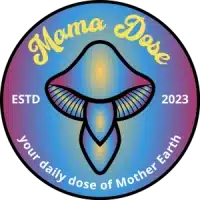

Table of Contents
Toggle
Psilocybin is a natural hallucinogenic compound found in psilocybin mushrooms. In the United States, it is classified as a Schedule I controlled substance by the federal government, and its use was officially banned under the Controlled Substances Act of 1970.
The decriminalization of psilocybin mushrooms in the United States began in 2019. Denver made history as the first U.S. city to deprioritize law enforcement efforts against psilocybin possession. With the passage of Initiative 301, the city declared that private ownership of psilocybin mushrooms would become its “lowest law enforcement priority.”
In November 2020, Oregon became the first state to legalize both personal possession of psilocybin and psilocybin-assisted therapy. Under Measure 109, the Oregon Health Authority (OHA) oversees the licensing and regulation of psilocybin production, distribution, sale, and services. Additionally, Measure 109, the Drug Addiction Treatment and Recovery Act, went into effect on February 1, 2021, reclassifying small-scale personal drug possession as a civil offense, with a maximum fine of $100—avoided if the individual agrees to treatment.
To date, seven U.S. states have decriminalized psilocybin, and one has fully legalized it. As public support for treating drug use as a health issue grows, more states and cities are likely to adopt decriminalization policies in the future.

Decriminalization and legalization are commonly mentioned in drug policy debates, but they are fundamentally different methods with significant societal implications. Understanding these distinctions is essential for determining their functions in developing legal and regulatory systems. The amount of governmental control and regulation is the main difference between decriminalization and legalization.
Decriminalization is the process of decreasing or removing criminal sanctions for personal possession or use of a substance, even if the substance remains technically unlawful. Enforcement is deprioritized, which frequently results in violations being handled as civil violations rather than criminal acts. This approach tries to decrease the load on the justice system and the punitive impact on individuals while not creating a legal market for the substance. For example, numerous places in the United States have decriminalized psilocybin, allowing people to own or consume it without fear of prosecution, but its sale and distribution are still illegal.
Legalization, on the other hand, goes beyond decriminalization by allowing for the full use, manufacturing, and sale of opiates under government regulation. This strategy involves developing a regulated and supervised market that includes safety standards, taxation, and rigorous restrictions for consumption and distribution. It encourages regulated access while also providing public supervision to guarantee responsible use. One notable example is the legalization of cannabis in several states in the United States, where dispensaries operate under a state-regulated framework.
Mama Dose Products are regulated under the 508(c)(1)(A) Freedom Religious Act, providing our medicinal products as lawful sacraments through the Church of the Sacred Plants. Operating under a 508(c)(1)(A) certification enables groups to assume the title of “faith-based church” or religious institution. Unlike regular 501(c)(3) nonprofits, 508(c)(1)(A) organizations are immediately tax-exempt and do not need to seek or receive IRS (The Internal Revenue Service) clearance to keep that status.

The First Amendment and the Religious Freedom Restoration Act (RFRA) provide the freedom to use religion, including the usage of sacraments. Psilocybin is recognized as a sacrament in some contexts, promoting spiritual growth, self-discovery, and mental clarity.
Courts have upheld religious usage of entheogens (psychedelics) in cases involving the UDV and Santo Daime religions, which use ayahuasca. These verdicts established a precedent for psilocybin use in a similar role.
Psilocybin-containing goods are marketed as spiritual tools or sacraments that promote personal growth, healing, and connection to the higher self. This religious framework is essential for separating the activity from recreational or solely commercial use. Members and participants are frequently taught how to use the goods properly and mindfully as part of their spiritual practices.
A 508(c)(1)(A) church has a religious mission at its foundation, such as promoting mental focus, spiritual connectivity, and overall well-being. Profits from gifts and suggested gifts are reinvested in the church’s mission rather than separated to individuals. This guarantees that religious organizations meet legal criteria, enhancing their legitimacy.
Many 508(c)(1)(A) organizations include educational materials on the safe and intentional use of psilocybin, highlighting its therapeutic advantages for mental health issues such as anxiety, depression, and PTSD.
This approach complements the spiritual mission by combining education, mindfulness, and healing activities.
Decriminalization and controlled medicinal usage, both in the USA and globally, will continue to shape psilocybin’s future. Its use in mental health therapies is going to become more widely accepted as more states and towns implement laws that lessen the penalty for personal possession.
On top of that, legal structures that facilitate sacramental use and religious exemptions offer pathways for its ongoing, lawful propagation. Psilocybin may someday gain acceptance as a tool for human development and healing in both spiritual and medical contexts with continued research and promotion.
As you can see, Mama Dose products like Mama’s 5g Chocolate Macrodose Journey Bar or Microdosing Supplements are fully legal and comply with the Freedom of Religion Act, ensuring a safe and regulated experience for everyone!
Invite your friends and earn a discount on your next purchase. Your friend also earns a discount! Get started now, by sharing your referral link with your friends.
This item is currently out of stock!
By adding it to your cart, you confirm a backorder purchase, and we will ship it as soon as it becomes available.